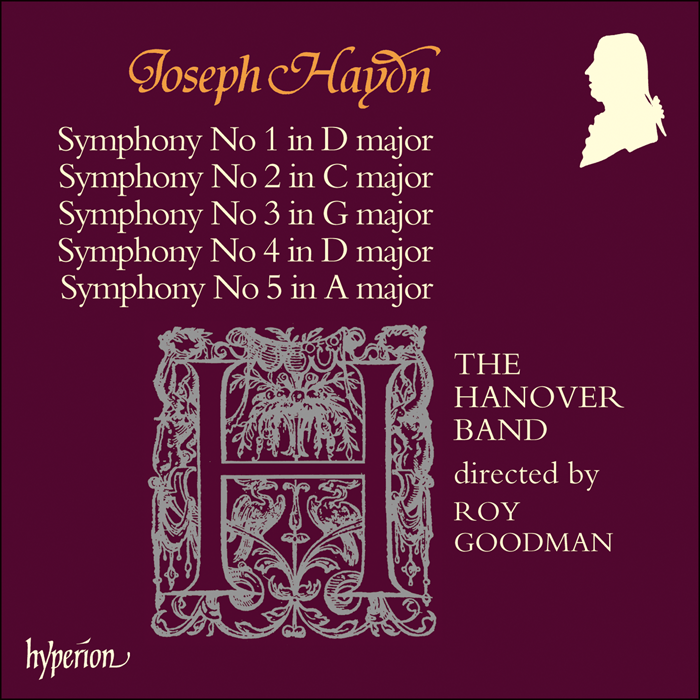Haydn: Symphonies Nos 1-5
The Hanover Band, Roy Goodman (conductor)
CDA66524
In 1749 Haydn was dismissed (some sources suggest forcefully, to say the least) from the choir school at St Stephan’s Cathedral in Vienna, partly because his voice was breaking (his choirmaster reputedly tried to persuade him to sacrifice himself to a career as a castrato), but the last straw was when he cut off a fellow pupil’s ponytail. His musical education at the school had been fairly minimal, principally instruction in singing and playing the violin, and his theoretical knowledge had largely been gleaned from private study, pouring over such tomes as Fux’s contrapuntal treatise Gradus ad Parnassum until late into the night. Now he was virtually alone in the world, hoping to make a living out of music. Very slowly he began to make his way teaching the keyboard (for little financial reward) during the day, while at night he would play in serenading parties (a popular pastime during the Viennese summer) and indulge in his almost fanatical urge to compose. He later wrote:
"I had to spend eight whole years trailing wretchedly around giving lessons to children—many a genius earning his bread in this miserable way comes to grief for lack of time to study. This was my experience and I would never have made such progress as I did had I not pursued my zeal for composition far into the night."
Many of his early pieces were serenades and divertimenti, but in 1751 he received his first commission, to write the music for a pantomime-operetta Der krummer Teufel (‘The Crooked Devil’, now lost). He then found work as accompanist to the young daughter of the renowned operatic librettist, Pietro Metastasio. Her singing teacher was the Neapolitan Nicola Porpora who eventually took Haydn on as accompanist (and valet) himself, giving the young composer the chance to have the lessons he had so long desired, and also introducing him to the aristocratic society that was soon to prove so useful. In about 1757 he was taken on as music-master to the family of Baron von Furnberg at whose summer home near Melk on the Danube Haydn composed his first string quartets for members of the baron’s household. (Haydn himself played the viola.)

